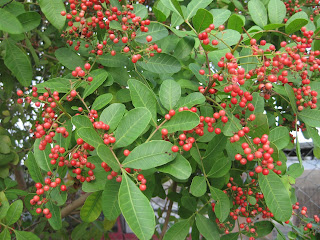Your Village PostScript featuring information, topics of interest and events for Manor Place Village, located in Timber Pines, Spring Hill, Florida.
Friday, March 17, 2017
Welcome!
Welcome to the Manor Place Village PostScript! The information posted in this publication is designed and intended to supplement our newsletter, The Messenger, that is published and distributed monthly between October-May. I hope that readers of the PostScript will find it informative and interesting. Please feel free to make suggestions, forward your ideas and topics that could appeal to our community. And, most of all enjoy the postings! Let's all continue to make Manor Place Village a beautiful place to live! ~ Gayle 😊
St. Patrick's Irish Party! Erin go Bragh!
St. Patrick’s Irish Party – March 15, 2017
at
the Lodge
Manor Place sure knows how to
celebrate! And what an evening it
was!! Traditional Irish Stew, soda
bread, cabbage, cole slaw and, of course, Julia’s Irish Cupcakes was served to
80+ villagers and friends. Karaoke, joke telling, a toast to the Irish with Irish Cream Liquer and the ‘potato dump’ game made the evening one to
remember. Many thanks to Phil and Ruth
Carley and their team of volunteers for organizing this fabulous event!!
Brazilian Peppertree
According to Wikipedia the description is as follows:
Brazilian peppertree is a sprawling shrub or small tree, with a shallow root system, reaching a height of 7–10 m. The branches can be upright, reclining, or nearly vine-like, all on the same plant. Its plastic morphology allows it to thrive in all kinds of ecosystems: from dunes to swamps, where it grows as a semiaquatic plant. The leaves are alternate, 10–22 cm long, pinnately compound with 5–15 leaflets; the leaflets are roughly oval, 3–6 cm long and 2–3.5 cm broad, and have finely toothed margins, an acute to rounded apex and yellowish veins. The leaf rachis between the leaflets is usually (but not invariably) slightly winged. The plant is dioecious, with small white flowers borne profusely in axillary clusters. The fruit is a drupe 4–5 mm diameter, carried in dense clusters of hundreds.
The two varieties are:
- S. terebinthifolius var. acutifolius, leaves to 22 cm, with 7–15 leaflets, fruit pink
- S. terebinthifolius var. terebinthifolius, leaves to 17 cm, with 5–13 leaflets, fruit red
Legal Status
The species, including the seed, is legally prohibited from sale, transport, or planting in Florida, according to the Florida Department of Agriculture and Consumer Services Noxious Weed List. It is classified as a Category I pest by The Florida Exotic Pest Plant Council (FL EPPC). To keep the plant from spreading into native plant communities and displacing them, local regulations and environmental guidelines require eradication of Brazilian pepper wherever possible. The plant and all parts are also illegal for sale or transfer in Texas. As one of the two species sold as pink peppercorn, the other being Schinus molle, it lacks generally recognized as safe (GRAS) status with the FDA.
Subscribe to:
Comments (Atom)






